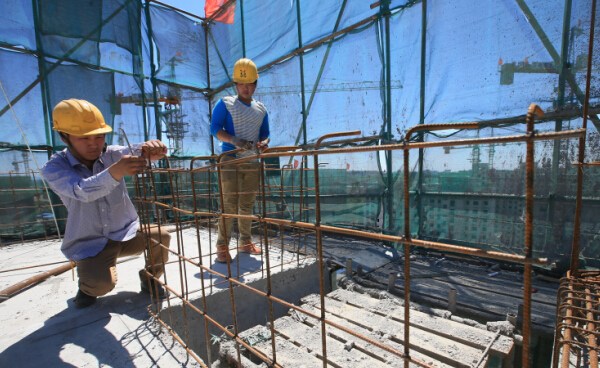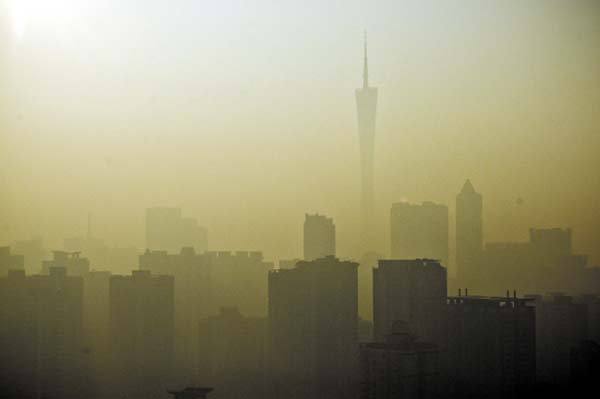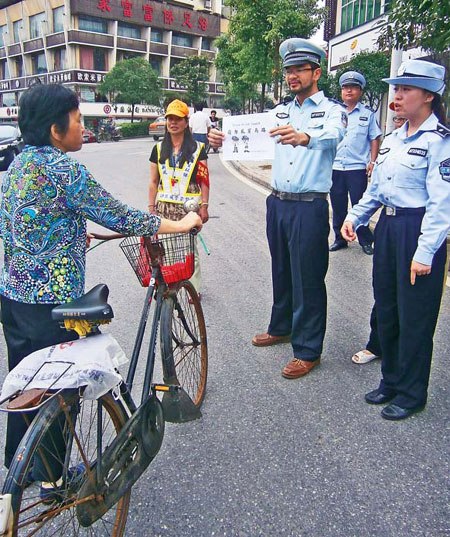
Building affordable housing is an important measure for the government to meet urban residents' needs for housing. (Photo/China Daily)
Editor's note: since the opening-up and reform policy was introduced in the late 1970s, China has witnessed urbanization on a massive scale as more than half the population now lives in cities compared with only 18 percent in 1978. The increasingly crowded and sprawling cities have been plagued by problems such as pollution, traffic, and rocketing housing price.
To address these problems, the Chinese government convened last week its first Central Urban Work Conference in 37 years to draw up plans to cope with the most pressing problems in city development. Here are some of the urgent issues the Chinese government is to deal with in the coming years.
Sponge city to soak up water shortage problem
Among more than 600 cities across China, nearly half of them suffer from water shortage. Take Beijing for example, the city relies heavily on water diverted through the South-North Water Diversion Project - 70 percent of the water pumped into the city comes from the Yangtze River.
To cope with water shortage in the cities, the Chinese government plans to invest more than 86.5 billion yuan ($13.3 billion) to build "sponge cities" that collect and recycle 70 percent of rainwater. The government also proposed to use a seawater desalination system and build a groundwater monitoring system to build a water-saving country.
To build enough affordable housing
In many large cities, the housing prices have increased rapidly, putting a lot of pressure on homebuyers and driving many people out of cities. In regard to addressing the housing problem, the guiding principle of Chinese government is that the government provides affordable housing while the market meets the needs for commercial houses. In 2015, the central government allocated 124.3 billion yuan ($20.2 billion) to fund an affordable housing program.
At the Central Urban Work Conference, the government vowed to complete renovation of rundown urban areas and dilapidated housing by 2020. The renovation is a crucial part of providing low-income urban residents with affordable housing.
Another major task of the government is to "transform migrant workers into urbanites", which is expected to deflate the tight housing inventory.
To govern the city in a humane way
The rude working style of chengguan, or urban patrol officers, is a striking problem in many cities. To improve the city management and provide better services to urbanites, the top leadership has proposed to clearly define responsibility and accountability of different municipal departments, and asked city officials to respect the urbanites' rights to know the truth, to participate in public affairs, and to supervise the work of government. The goal is city governance for the people, by the people.
To slash major pollutants by 2020
News of severe air pollution in urban areas has made headlines more and more over the last few years. These indicate the environment is worsening dues to an unsustainable development mode. According to recently published research by the Chinese Academy of Social Sciences, close to 90 percent of Chinese cities, including Beijing, are in "sub health" conditions.
The Chinese government vows to improve the environment overall and significantly cut down the main pollutants through combining the forces of both government and market by 2020, the year China plans to have built a comprehensively well-off society.
To build modern cities with sophisticated transport network
China is home to more than 160 million cars, only second to the US. However, the urban public transportation system lags behind those of developed countries. In Beijing, there are more than five million private cars, and one third of the commuters choose private vehicles rather than public transport, nearly four times the rate in London and three times that of Singapore. This means for every one hour a commuter spends on the roads 30 minutes is wasted in traffic congestion.
To address the traffic problem, the Chinese government aims to build an integrated public transport system featuring large capacity and low costs, complemented by private transport.


















































